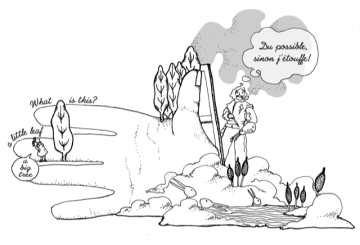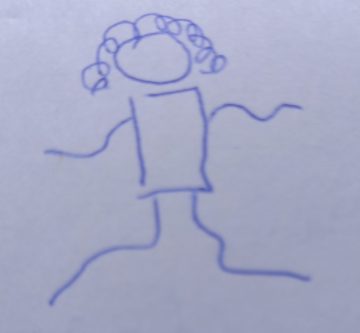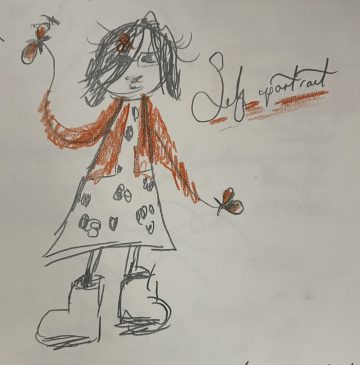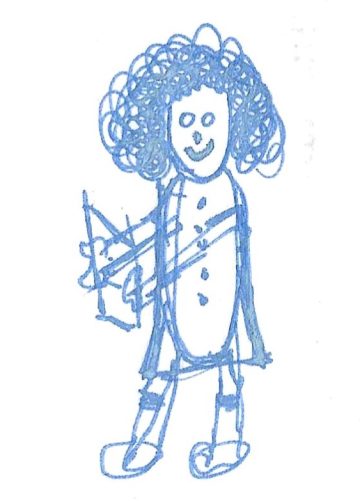
Source: Monica Sassatelli
Seminar on the 4th May 2022:
Drawing research: Using drawing as a participatory research paradigm
Drawing has had a place in social research for a long time, especially in anthropology as field note taking, but also more specifically and recently in arts-based research and visual studies. Social research on drawings is a well-established method in a variety of related areas from psycho-social research with children to market research. Research with drawings however, where both the artefact and the practice of drawing are a constitutive part of the production of knowledge being sought, often in collaboration with research participants, is rarer. In this talk Dr Monica Sassatelli looks into the latter, with particular focus on the affordances of narrative drawing.
There is some drawing involved in this presentation: please have some paper and a pencil or pen ready.
Here are some drawings from participants:

Source: RJ

Source: SBass

Source: NB
Download Dr Sassatelli’s slides.
Dr Monica Sassatelli is Associate Professor at the University of Bologna, Italy. She is a cultural sociologist with research expertise on on cultural events and institutions, cultural policies and creative industries. Among her publications are the monograph Becoming Europeans. Cultural Identity and Cultural Policies and the edited collection Arts Festivals and the Cultural Public Sphere. Recent articles include: “‘Europe in your Pocket’: narratives of identity in euro iconography” (Journal of Contemporary European Studies) and “Symbolic Production in the Art Biennial: Making Worlds” (Theory, Culture and Society).
Subscribe to the recordings:
Video hosted on the PAR YouTube channel.
Audio hosted on the PAR Buzzsprout channel and can be listened to on Spotify, Apple podcasts or on other RSS podcast apps.
The Practice As Research network with its resources is free and always will be, but it does of course incur costs to run and to keep it running. If you use it and benefit, enjoy it and would like to keep it going, please, consider leaving something in the tip jar. Thank you!